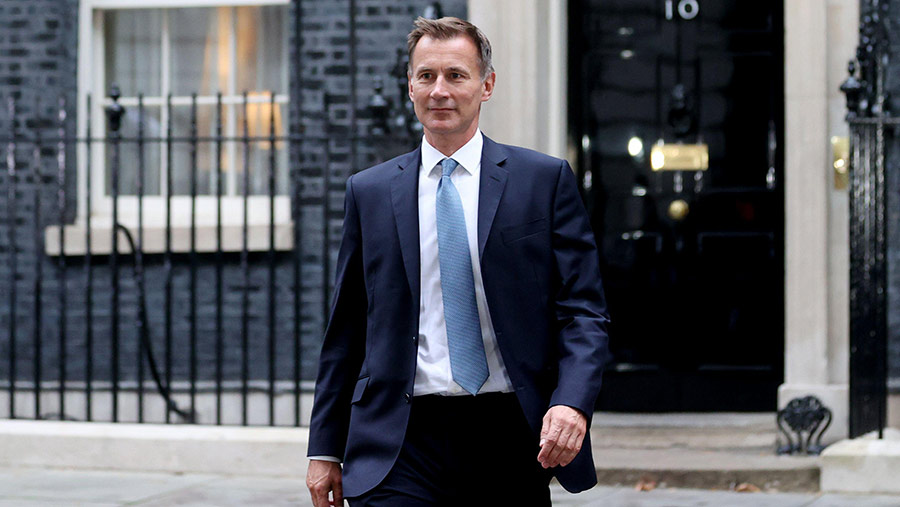£1m AIA to stay despite government’s mini Budget U-turns
 © Xinhua/Alamy Stock
© Xinhua/Alamy Stock The annual investment allowance (AIA) is set to remain at £1m, as announced in former chancellor Kwasi Kwarteng’s mini Budget, despite the government’s numerous recent U-turns.
New chancellor Jeremy Hunt has confirmed that the AIA – which allows 100% of spending on plant and equipment to be set against business income in the year the spending is incurred – will stay at £1m, after previous plans to reduce it to £200,000/year.
This is one of the very few examples of the government’s plans being consistent following Mr Kwarteng’s departure, as the new chancellor seeks to reverse decisions that saw the pound drop to a 37-year low against the US dollar.
The chancellor is expected to make another statement on 31 October.
See also: Energy support scheme: The details for farm businesses
Energy support
The government’s energy price guarantee for households – limiting the price that suppliers could charge for each unit of energy – was originally put in place for two years.
This will now run for six months, with the Treasury reviewing the support scheme in April.
Support for businesses, through the energy bill relief scheme, was already only due to last for six months.
It is understood this support will go ahead as planned, and also be reviewed from April.
The next stage is likely to be targeted only at businesses in most need of support and provide some form of incentive for businesses to improve energy efficiency.
Income tax
A cut in the basic rate of income tax from 20% to 19% -– which was promised by both Rishi Sunak and Mr Kwarteng this year – has now been cancelled.
Instead, Mr Hunt has said the basic rate of income tax will stay at 20% indefinitely.
The proposed abolition of the 45% additional rate of tax, paid by those earning more than £150,000 a year, had already been ruled out.
Corporation tax
The planned April 2023 rise in corporation tax from 19% to 25%, shelved by Mr Kwarteng, will now go ahead under his successor.
National insurance
Meanwhile, the 1.25% rise in national insurance rates, introduced last April for employees, employers and the self-employed, will still be cancelled on 6 November.
Stamp duty
There will be no stamp duty on the first £250,000 of a property’s value, while first-time buyers will not pay stamp duty on the first £425,000.
Planning
The government insisted it would keep a number of pro-growth reforms from the mini Budget, including the creation of new low-tax investment zones and plans to relax planning regulations and speed up the delivery of infrastructure projects.
It previously announced plans to set up investment zones in 38 local areas in England to include lower taxes, business rates and freer planning rules to release land for housing and commercial development – likely to affect many thousands of acres of farmland.
Duty rates
Duty rate rises for smaller wine and beer makers were cancelled in the mini Budget.
However, planned increases in the duty rates for beer, cider, wine and spirits will now go ahead from February 2023, which will reportedly be worth about £600m a year.
